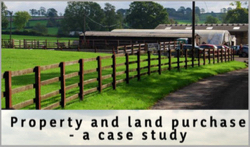Permitted SSAS investments
You can be fully in control of a wide range of investments, using a SSAS as a tax-free wrapper to fund the retirement of Scheme Members.
These include:
- Commercial Property
- Land (including agricultural land)
- Residential property not considered taxable property as defined by Schedule 29A of the Finance Act 2004 (e.g. student accommodation, residential care homes, etc.)
- Hotel accommodation
- UK quoted shares, stocks and debentures
- Stocks and shares quoted on a recognised overseas stock exchange including Investment Trusts, Real estate Investment Trusts (REITs), and exchange traded commodities
- Shares in the sponsoring employer
- Government & local authority bonds and other fixed interest stocks
- Listed Corporate bonds
- Futures and Options quoted on a recognised stock exchange
- Hedge Funds
- Insurance company funds
- Bank and Building Society deposits
- Cash deposits in any major currency
- Gold Bullion of an investment grade acceptable to HMRC being not less than 995 thousandths that is in a form of a bar or wafer, of a weight accepted by the bullion markets
- Loans to associated or unassociated companies (the latter must be genuine third parties and loans must be made on an arms-length basis and not exceed 50% of the scheme value in aggregate)
- National Savings & Investments (NS&I) products, where the Terms and Conditions of the product permit it to be held by a registered pension scheme
Some investments are higher risk than others. You should understand the risk profile attached to different investments and discuss this with your IFA, if you have one.
Some investments, such as commercial property, can be harder to sell than others and this needs to be borne in mind when planning for retirement.
SSAS Practitioner.com does not provide investment advice. We recommend you speak to an IFA prior to making investment decisions.
The process for investment via your SSAS Practitioner.com SSAS is very simple: you contact us with your proposed investment, and we check whether it is allowable under HMRC rules. If the investment is allowable, you go ahead and make the investment.
Please do not make an investment via your SSAS without speaking to us, as there are a wide range of issues to bear in mind.
Loans to unassociated companies
Although Third Party Loans can provide very good returns for trustees under the SSAS, this has to be balanced with the speculative nature of this type of investment. As a firm we have made a decision with effect from July 2022 to alter our product offering, to restrict investments into this type of investment to 50% of the current net market value for any new third party loans (the percentage is on an accumulative basis and so will include any previous third party loans made). For existing clients who have existing third party loans in place over this limit, they can remain in place until the end of the term of the third party loan.
We are no longer offering third party loans to individuals.
Trustee(s)/Member(s) need to ensure that they are acting prudently and in the best interest of the beneficiaries under the scheme when making investments for the pension scheme. The below should be considered whenever the trustee(s)/member(s) are thinking of investing in a third party loan:
Risk - Third party loans are high risk investments, the trustee(s)/member(s) could potentially lose the whole investment. There are no guaranteed rates of return. The investment is unregulated by the FCA which means there is no financial services compensation scheme in place should the investment fail. Although if you take FCA regulated advice, you may be able to claim either through the Financial Ombudsman Service or the Pensions Ombudsman, if the advice is deemed faulty.
Spreading the pension fund investment - By spreading pension fund money between different types of investment, this can protect the trustee(s)/member(s) against an investment failing. By holding a diverse range of investment types, this will help minimise bad performance of a single investment type.
Potential difficultly of illiquid nature of investment - It may be difficult to recover third party loans if required at short notice, in order to pay pension benefits or death benefits. Although the trustee(s)/member(s) should be considering this upfront, it is not prudent to tie up too much in illiquid assets.
Selling Investment (secondary market) - Should the trustee(s)/member(s) wish to sell the third party loan, there might not be a secondary market for this type of investment and it might not therefore be possible to sell.
SSAS Bank account
Each SSAS has its own bank account, which is used to manage the scheme’s cash. All transactions must pass through this account.
The account is held in the name of the Member Trustees. Unlike SSAS bank accounts via traditional SSAS Providers who act as Administrators for the scheme, SSAS Practitioner.com does not countersign each bank transaction, making the process quicker and much more efficient. It is essential that you consult us prior to making an investment using the scheme bank account in order for us to confirm that the investment is allowable under HMRC rules.
The majority of SSAS providers take an element of interest trail, known as 'interest turn', which is the money they earn from interest paid by banks on customers' cash holdings with the SSAS. Their customers then receive a reduced rate of interest on their SSAS cash holdings. SSAS Practitioner.com do not receive any interest from banks, our customers receive their full quota of interest.
We have a good relationship with a specialist pension banking providers who offer:
- No bank fees
- No transaction charges
- A good rate of interest (details available on request)
- Monthly bank statements.
- Deposit accounts with very competitive rates of interest
You are of course free to use a bank of your choice if you prefer; this is no problem whatsoever. We will liaise with whoever you chose to provide your SSAS's bank account and ensure it's set-up as quickly and efficiently as possible.

